Disclosure: Joyfully Domestic may earn a commission for purchases made after clicking links on this page. View our disclosure policy for details.
Over the past few years, we have been using a Charlotte Mason method of education. But as time goes on, I think we all come to a point where we start to have doubts or question the method.
In this post, I’m sharing some of my personal struggles that I’ve faced with the Charlotte Mason method. And after much reflection and studying of the CM method & principles, I’ve begun to trust the process.
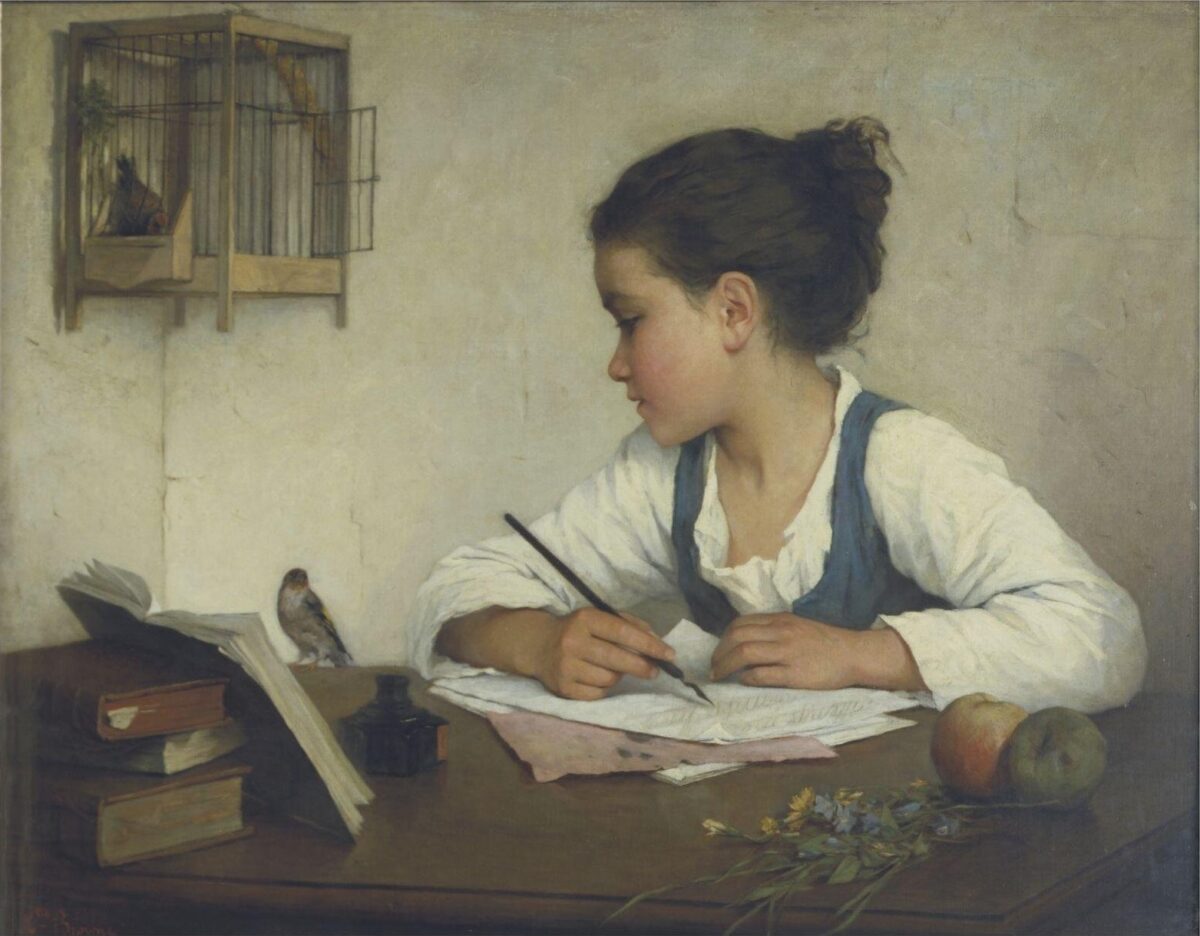
Initial Struggles
Before I dive in too deeply, I want to clarify a few things.
In this post, I want to share some of the things that have been on my heart and that I’m pondering in regards to the Charlotte Mason method of education.
Over the course of last year, I started to see signs of struggle in regards to language arts and math lessons in our homeschool. Instead of trusting the process or pondering my own mistakes, I decided to partially pivot to another method – the classical method.
But this really wasn’t the best choice for us and I began to pivot back to CM.
Update: Later, I learned that this wasn’t truly classical — instead it is neo-classical. More updates at the end of this post.
It was after re-reading “For the Children’s Sake” that I decided to really dive back into the CM method and make slight changes to how we are approaching these subjects.
The following section from the book really stood out at me and helped me with my struggles.
By being allowed to learn at their own speed, the children taught by Charlotte Mason were happy with their mastery of skills. They did not ‘fail’ or ‘pass.’ They learned how to read and write accurately. A high standard was expected, but at a level appropriate to the child’s ability. It was like climbing one’s own private ladder. It was not to be like a race.
For the children’s sake, Susan Schaeffer Macaulay
This is what I needed to read. It led me on to a deeper dive into Mason’s methods. And I went back through some of the Mother’s Education Courses from The CMEC.
As I went through these courses, there was a specific article from The Parent’s Review that really stood out to me: “Teaching and Time” This article is fantastic, and I highly recommend taking the time to read through it.
I want to highlight a couple of quotes from this article which really stood out to me.
…If we trouble to search, we can invariable find some informing idea in Charlotte Mason’s books to bring freshness when our teaching goes stale or wrong.
teaching and time, e.l. molyneux
And…
When our pupils’ understanding, achievement and zest slump, it may well be that a survey of how lesson hours are actually spent will reveal the whole cause of the malady.
Teaching and time, e.L. molyneux
And these lines from the article really made me stop and ponder.
It was in reading over some sections from “Philosophy of Education” by Charlotte Mason that I decided to really trust the process.
No doubt we do give intellectual food, but too little of it; let us have courage and we shall be surprised, as we are now and then, at the amount of intellectual strong meat almost any child will take at a meal and digest at his leisure.
philosophy of education (p 237), Charlotte Mason
And also this quote…
…that his part is not the fearful task of spoon-feeding with pap meat, but delightful commerce of equal minds where his is the part of guide, philosopher, and friend.
philosophy of education (p 237), Charlotte Mason
This is something that I want to take the remaining of our school year and into the summer to consider.

Latin as a Core Subject
I also wanted to transition to Latin as a core part of our curriculum, with the addition of Greek a bit later. I introduced Latin to all of my children at the beginning of term 2 this year, and it has really helped with our other Language Arts lessons.
This is something that I think is missing from the Charlotte Mason method. The latin and grammar lessons are usually pushed until later years with CM.
Some of my children were excellent readers and the comprehension skills were just fine. However, spelling and grammar was a struggle for one of my children.
Believe it or not, but Latin combined with English Grammar has helped them improve in these areas.
Short Lessons & Mastering Subjects
Many mothers love that Charlotte Mason includes many subjects spread over short lessons. And I do too! Especially for one of my students who struggles with focus — these short lessons on our timetable help keep him engaged.
I also love shorter lessons especially for the beginning students. I have noticed that my children required more time and effort in mastering certain subjects. So, this is something that I am working through with our timetable and making necessary adjustments.
I know that CM is not too keen on memorizing a bunch of facts and encourages living ideas instead. And I absolutely love this concept.
This is something that I still believe is important, however, I do think that sometimes we can become hung up on facts vs ideas — and certain facts like math mastery can be missed.
I still adhere to the Charlotte Mason method, but I’m also ok with my children studying math facts more in depth with flashcards or extra practice as needed.

Classical Catholic
There is one last point that I wanted to share with something I struggled with in regards to Charlotte Mason.
I have spent a lot of time reflecting on our ultimate goals in our education at home over the past couple of years. Our mission and goal in our homeschool is to incorporate more of the traditions, ancient beauty & wisdom of the more than two thousand years of Catholic history, culture, and arts into our every day.
On our quest towards what is Good, True, and Beautiful, we want to encourage our students more deeply into the life of God and the thoughts, wisdom, and example of the saints.
Whatsoever things are true, whatsoever modest, whatsoever just, whatsoever holy, whatsoever lovely, whatsoever of good fame, if there be any virtue, if any praise of discipline, think on these things.
Philippians 4:8
And yes, Charlotte Mason does encourage bible readings and has a Christian based methodology. But there are still quite a bit of differences between her method and the Catholic tradition.
But these can easily be rectified with supplements. It has taken me a bit more of research in finding these items and I will continue to search for good catholic classics to implement inside of my homeschool. If you have favorites, please share with me in the comments below.
Some of the struggles I’ve had with following a lot of the curriculum recommendations from many CM sources of living books are they are steeped full of protestant & many anti-Catholic themes. Of course these things can be supplemented (and we have in the past), but in general, I would like to follow the Catholic tradition as best as we can.
Update 12/4/24
After much searching, God has led us on new path. You can read about that journey in this post: An Education in Wonder
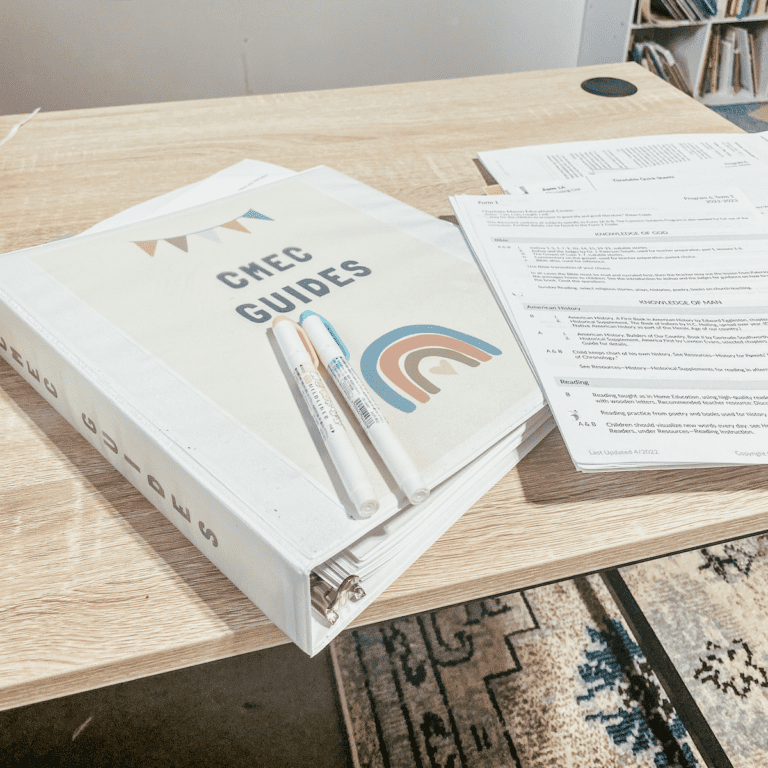
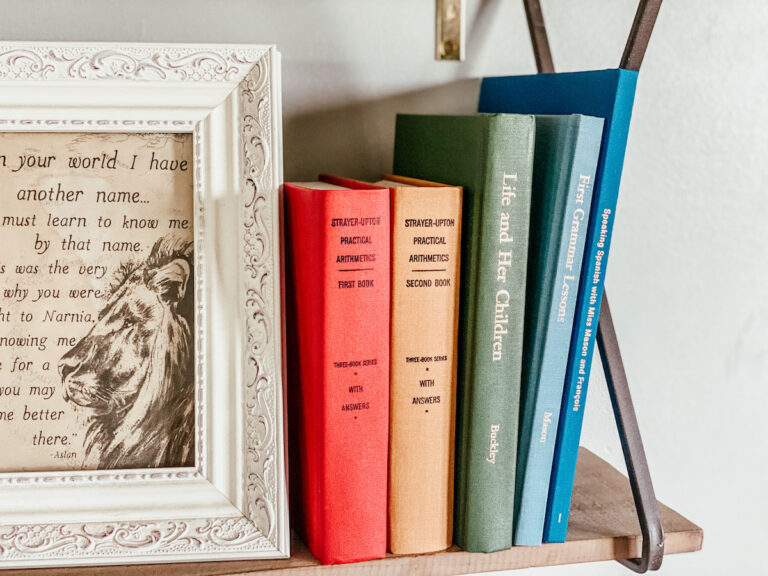
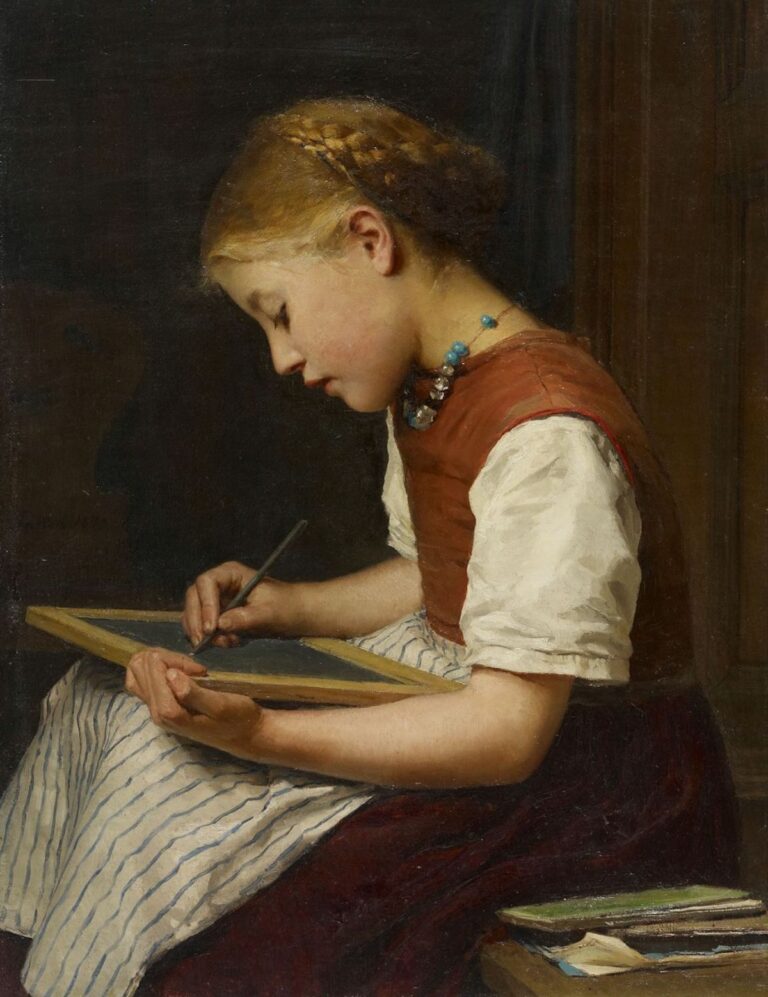

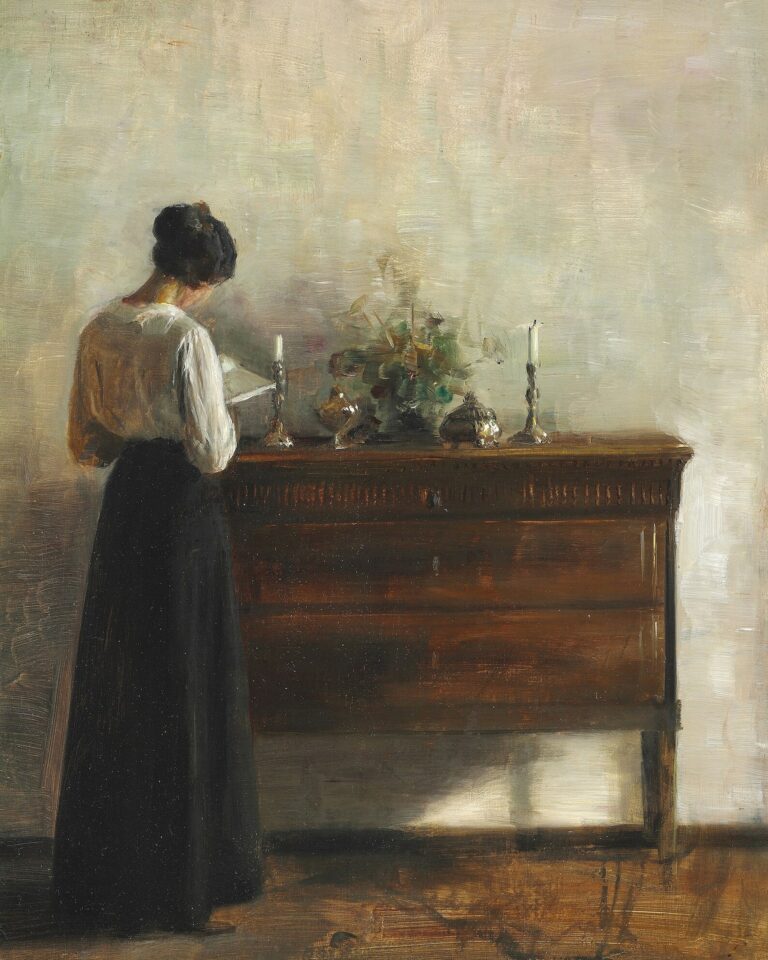

Thanks Mary for taking the time to put this down. I know how busy us homeschool mums are. I love the Charlottle Mason method, but I have also experienced the lack of Catholic perspective in the books recommended. (By the way the Catholic English history book you recommended is excellent!) It is amazing what you come up against with even a simple bible commentary, and I think I will be steering away from some of them this next year. Definitely need to to pre-read everything.
I am curious how you are implementing this and so I look forward to your next post. And how time heavy it is. I am struggling with the amount of pre-reading and maths preparation, as well as not understanding the Latin course recommended from the CMEC, not to mention a new student starting this year. I am also thinking of getting to daily mass a few times a week, but not sure how this will work.
May God bless you. I have missed your posts!
Tania from Australia
Hi Tania!
Yes, that pre-reading is always such a challenge and something I usually struggle with. This is another huge factor in trying to be extra careful and selecting from good Traditional Catholic books/resources. I try to get most of the pre-reading done during the children’s catechism week at church over the summer, but that’s still not always enough time.
I really love the Latin courses from Memoria Press! I’ll write more in detail about it in an upcoming post.
I’ve had several comments about how we made this transition to from CM to more Classical & Catholic, so I will write a post soon. Hopefully by the end of the week. 🙂
God bless you!
God bless you & your beautiful family, Mary. You are so wise & blessed to have chosen these options of the good, true & beautiful. I wish I had the wisdom 50 yrs ago that you have now. Please ask your family to pray for my kids, David & Sandy & their children, Nicholas, Amanda, Nathan & Eddie. It’s a very tough world out there. Blessings, Barb F
Thank you, Barb!
“All wisdom is from the Lord God, and hath been always with Him, and is before all time”. —Ecclesiasticus 1:1
We will say a prayer for your family. 🙂 God bless you!
I would love to hear what you are doing going forward. If I remember correctly, you were using CMEC, I have been as well for several years. And it was working beautifully for me until this past year. My oldest started high school, I had some health flares, some difficult family times that drained me mentally, and I just wasn’t able to put in what CMEC really requires in order for progress. I have been praying and will continue, as I am not liking alternative options! I’ve tried creating my own curriculum and that was stressful and left too many gaps. I opened a Memoria Press workbook and it caused me great anxiety. I always appreciate hearing how fellow traditional Catholics are tackling this difficult but vital aspect of their vocation!
Hi Nicole! Thanks so much for your comment! 🙂
Yes, we are using the CMEC and I do enjoy it. I will write a post about what we are currently using with our curriculum and how it’s changed. And will also share in another post what we are going to use for the new school year coming up.
I do like a lot of what Memoria Press has available, but I also understand the overwhelm. The Latin programs are really great! Also…we aren’t using everything that they have available. I know that some of the options they recommend were just too much for my kids to manage this year. Which workbook did you look at that caused anxiety?
Mary, I appreciate your comment! I think it may have been a logic workbook. I went down some rabbit holes today trying to find a more classical, Catholic curriculum and found some great options but they were online and I know that won’t work well for me. I really need physical books! I did find what seemed to be nice options for some subjects at, I believe, St Jerome’s Library and also Lepanto Press. But then I’m back to basically creating my own curriculum. I’m looking forward to your post discussing what is working for you. I find those very helpful and inspiring!
Hi Nicole, I have not looked at Logic…we aren’t quite there yet! But I have used both St. Jerome’s Library and Lepanto Press /OLVS. They are good solid Catholic books, but not favorites of ours. They don’t really fit in with our Classical ideals. St Jerome is free of anything related to modernism, which is great! We just don’t use them in our homeschool. I’ll share more in a post coming soon. 😀
We do Mater Amibilis Charlotte Mason, it is Catholic and it is wonderful! We move it so much.
Thanks for sharing!:)
You have shared some similar struggles that I have had, going back and forth with Charlotte Mason and a more classical approach. I really think the two can work hand in hand together and it also depends on the children we are teaching. Each being so different, and then different from year to year in themselves. In fact, I think it does bring some refreshment every year to change things up a bit, otherwise boredom sets in for us mother/teachers!
I loved CMEC and learned a lot and it has helped me have a better idea of structuring our day. However I struggled with the same things you did as a Catholic, and have had to supplement, along with needing Australian content, so it turns out I was supplementing a lot.
I have purchased The Children’s Tradition and am working with that with my youngest. So far so good. It is based upon the work of John Senior, but you may be familiar with him already. I have also found much encouragement from The Commonplace with Autumn Kern. With my teenage daughter I am going to go out on a limb and create my own curriculum this year. Pulling things from Mater Amabilis, Ambleside and Joyous Lessons blog.
God bless you Mary, your site is always encouraging!
This is amazing, thank you for sharing. 🙂 We did switch over to the Children’s Tradition early in term 1. But I haven’t shared anything about it just yet because I wanted to make sure it worked well for our family. I’ll give an update in the future, but it has been amazing…with only a few slight adjustments / additions.